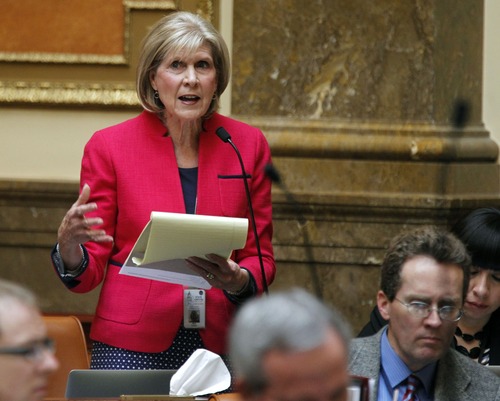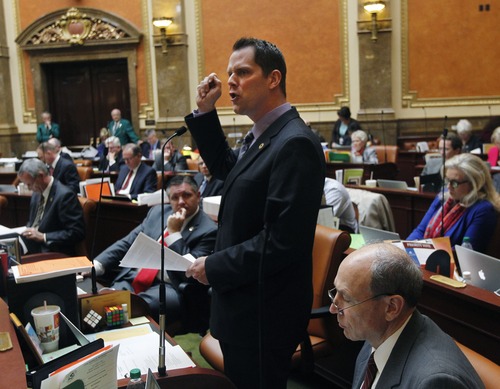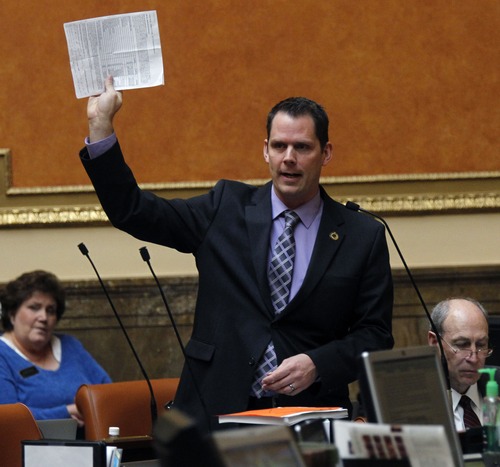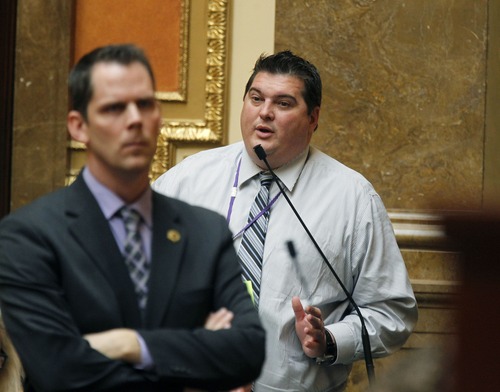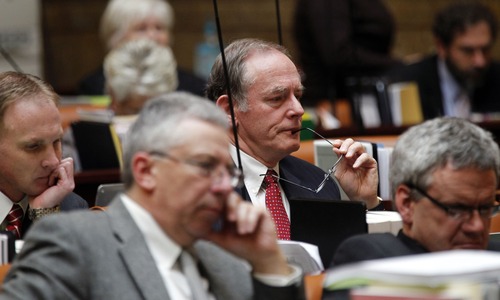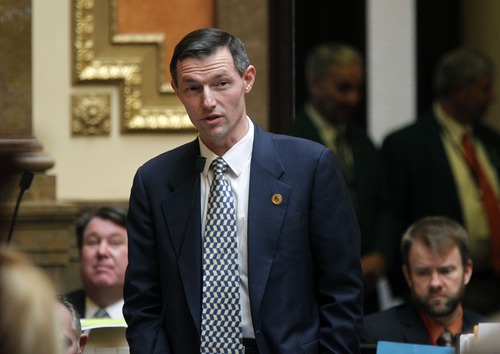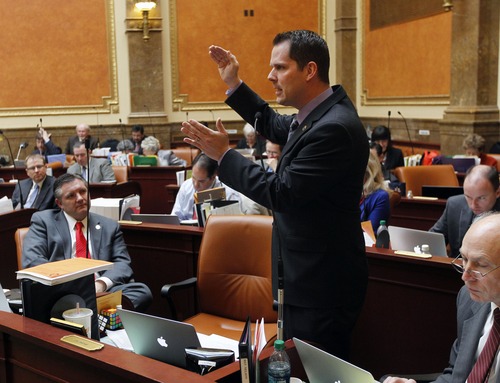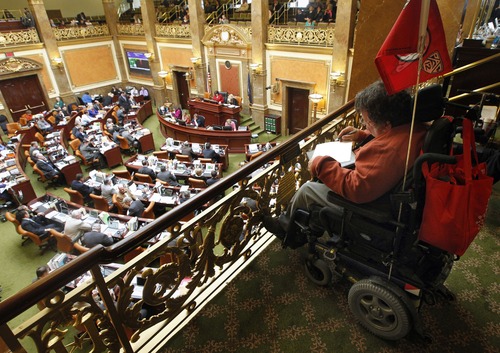This is an archived article that was published on sltrib.com in 2013, and information in the article may be outdated. It is provided only for personal research purposes and may not be reprinted.
A bill that would prevent Medicaid's expansion in Utah passed the House Monday by a wide margin with urging from a family doctor who argued the health care solution for 131,000 poor and uninsured isn't bigger government, but more charity.
"As a dedicated member of the predominant faith, I donate four hours a week to Boy Scouts....So what if I was assigned by my faith as a doctor to contribute four hours a week to charity care? What if the 3,000 doctors in the state were willing to do that?" said Rep. Michael Kennedy, a family practitioner who sees patients at a University of Utah-owned clinic in Orem. "I would do it in a heartbeat. Would others do the same?...I believe they would."
Kennedy, R-Alpine, wasn't the only health professional to vote for HB391. Joining him were surgeon, Rep. Stewart Barlow, R-Fruit Heights; hospital administrator Rep. Dean Sanpei, R-Provo, and House Speaker Becky Lockhart, formerly a nurse. Rep. Edward Redd, R-Logan, and a physician, voted against the measure.
The bill passed 46-27 and heads now to the Senate. It would bar Utah Gov. Gary Herbert and the state Department of Health from embracing the expansion, a now-optional provision of the Affordable Care Act.
Herbert is fretting the costs of expanding Medicaid to cover Utahns under 138 percent of the federal poverty line, both for the state and federal government. But he has asked lawmakers to wait for results of a state-commissioned cost study before passing judgment.
The Legislative Fiscal Analyst has estimated that the Medicaid expansion would save the state about $6 million in the first year and nearly $16 million in the second year by replacing state-funded care for inmates, youth in state custody and those with mental health and addiction issues.
By 2021, when states are footing 10 percent of the bill, Utah would have to come up with $60 million to draw down $653 million in federal funds.
Refusing federal funds doesn't mean Utahns will get a tax refund or that the deficit will disappear, argued Rep. Marie Poulson, D-Cottonwood Heights. "This is not dirty money from the mafia, but our federal tax dollars coming back to the state...Are we willing to hold hostage the lives of so many of those people just to make a political statement?"
But the bill's sponsor. Rep. Jacob Anderegg, R-Lehi, said the federal government can't keep spending money it doesn't have.
"There was a reason the Legislature was vested with appropriative [sic] powers, so that one person couldn't make dictatorial decisions," he said, adding "the time is now" for Utah to stand against federal blandishments and the creep of socialized medicine.
Crying and quoting scripture, Anderegg called upon providers to do more and upon corporations to divert money they spend on international charities to building and staffing clinics at home.
"So-called charity care is a viable option if you get the right people at the table," he said. "My vision is a vision of people, county by county, throughout the state hearing the call to action and stepping up to serve the least of these, our brethren."
HB391, however, faces a doubtful future in the Senate.
"I think the governor's the man who has the call on expansion of Medicaid. I think at this point, I would prefer not to tie his hands, and give him whatever latitude he needs to make his decision," said Senate Majority Whip Pete Knudson, R-Brigham City.
Sen. Brian Shiozawa, an emergency room doctor, said he's no fan of Obamacare but charity care is not the answer.
"Twenty-five percent of the patients at St. Mark's [hospital] have no insurance. They come to us because they don't have anywhere else to go and a lot of them fall under the poverty line," said the Cottonwood Heights Republican.
Society pays for that charity care through rising medical costs and insurance premiums, he said. "It's not optimal care. Emergency care is expensive and it's episodic. We see a patient once and send them on and all the other problems remain unaddressed."
The state's four major hospital chains have seen their uncompensated care — charity care plus unpaid bills — more than triple in nine years, to $698 million in 2012.
Senate President Wayne Niederahauser, R-Sandy, said states are holding off on the Medicaid expansion to see if they can persuade the federal government to get their fiscal house in order first.
"If that fails, I think that as each state goes ahead and expands, Utah will probably end up doing that at some point because we want our share of the pie," he said. "But first of all we need to send a message to Washington: don't increase spending, balance your budget first."
Tribune reporter Lee Davidson contributed to this story.


